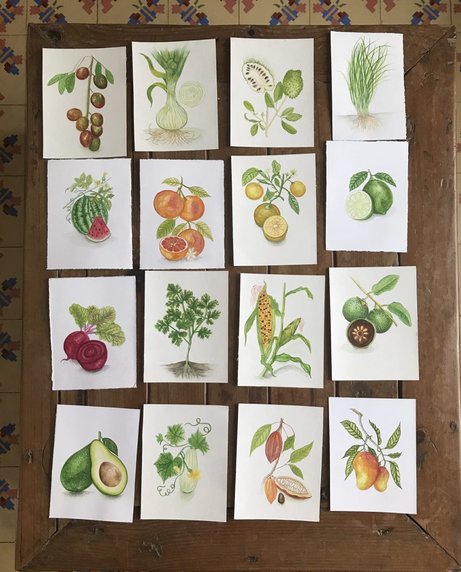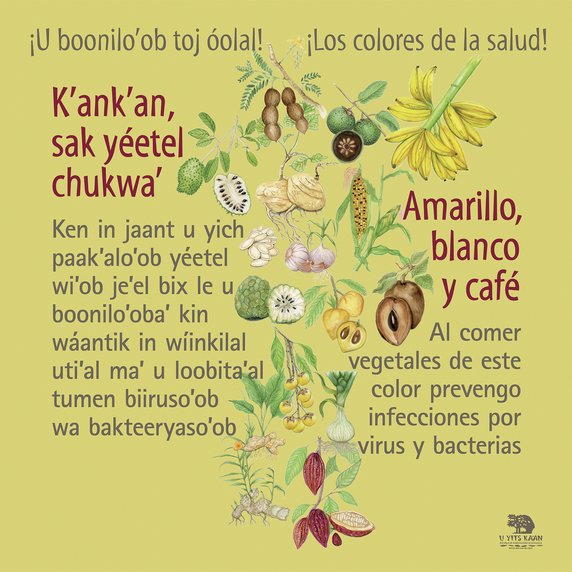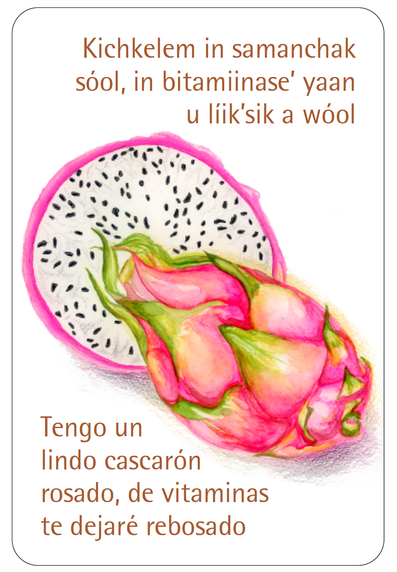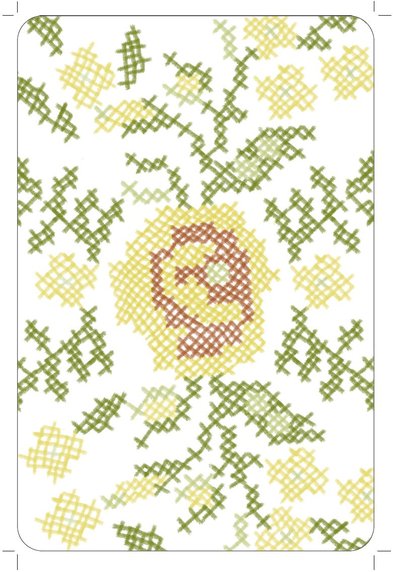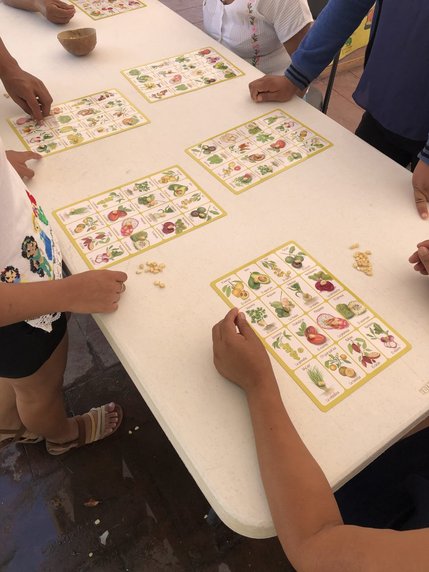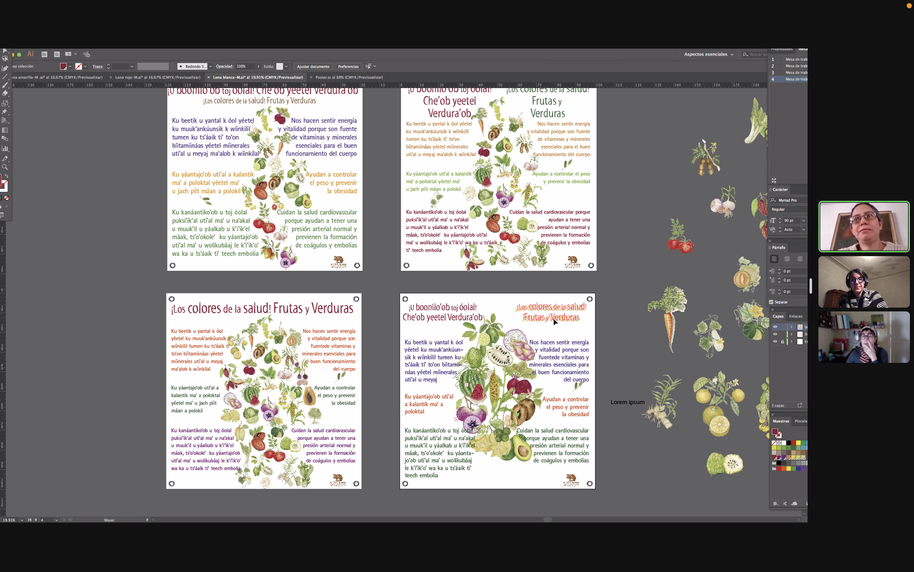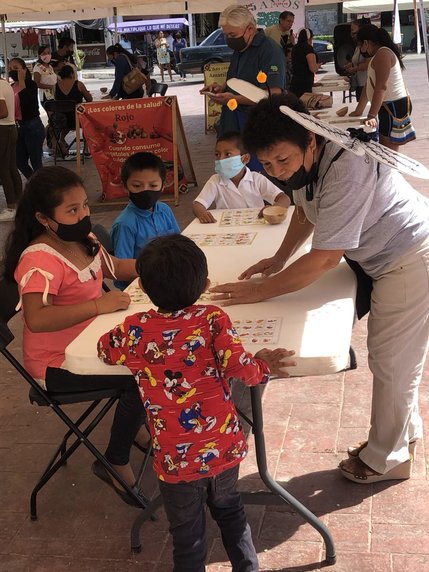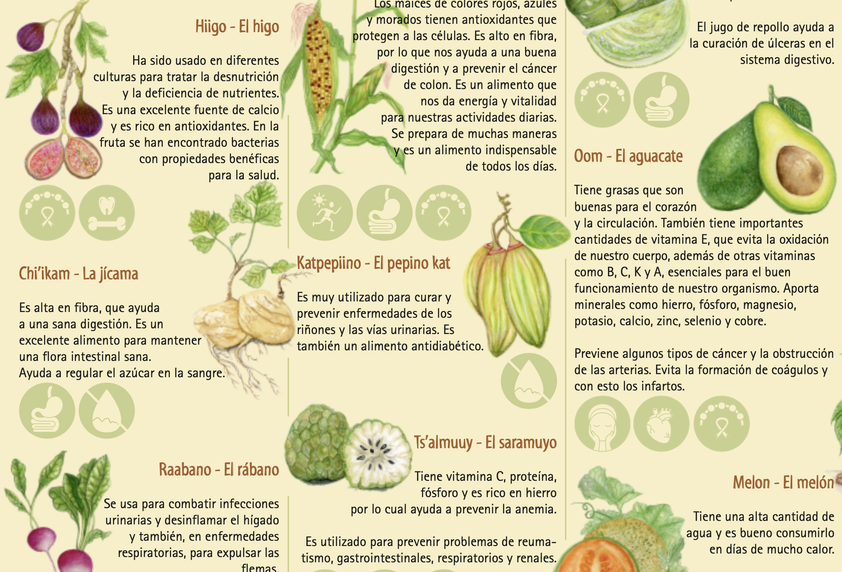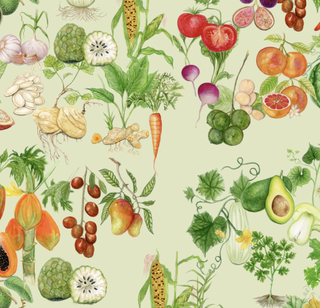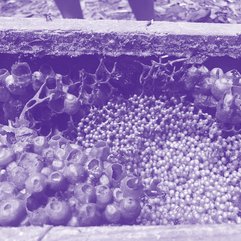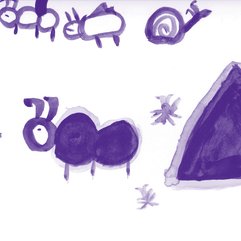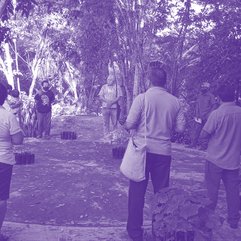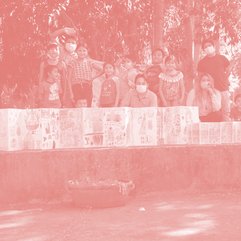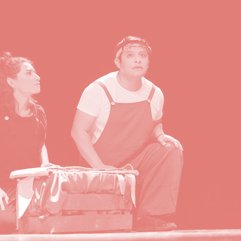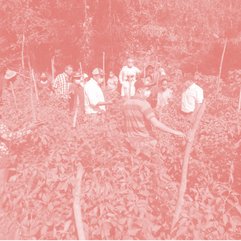Lotería de la Salud / U k'aybuulil toj óolal
Multi-generational Learning through Playing
Since millennia, traditional agriculture in the Yucatan has produced an extraordinary variety of indigenous vegetables and fruits, which, together with a broad knowledge of medicinal plants, is of fundamental importance for a healthy lifestyle and the prevention and treatment of diseases. The associated knowledge is becoming ever more important today because the expansion of the consumption of industrially produced food has led to the spread of nutrition-related diseases, especially among children of economically disadvantaged families.
For this reason, the agroecological school U Yits Ka'an collaborated with nutritionist Vanessa Gamboa to develop a “health bingo”, an adaptation of the very popular Mexican lotería game. The aim is for children and their families to become familiarized with the nutritional properties and health benefits of local products cultivated in the milpas of Yucatán. The "Lotería de la Salud" in Spanish, or "U k'aybuulil toj óolal" in Yucatec Maya, is composed of nine boards and 45 cards depicting different vegetables and fruits from the peninsula accompanied by bilingual riddles that playfully describe their nutritional properties.
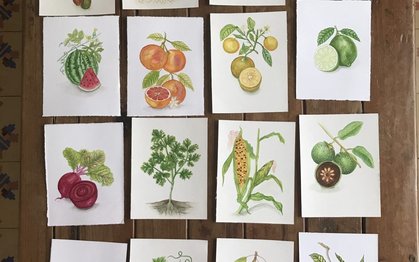

Illustrator, artist and educator Cecilia Moo was commissioned with illustrating each fruit and vegetable included in the game. Her delicate watercolors highlight the specific characteristics of each food and the variants that exist in Yucatán (for example, a certain type of mango, pepper, or corn). Her images of the fruits and vegetables still attached to the respective source plant, with leaves, or as growing in a specific type of earth, visualize their natural growth and origin. The scanned drawings were then integrated into the game by designer Mina Bárcenas, who added a rich pattern of typical local Mayan embroidery to the back of the card. The riddles in both languages were formulated and honed by poets Maria Elisa Chavarrea and Pedro Uc and translators Iván Jiménez Balam, Roseli Jiménez Balam, and Daniela Esther Cano.

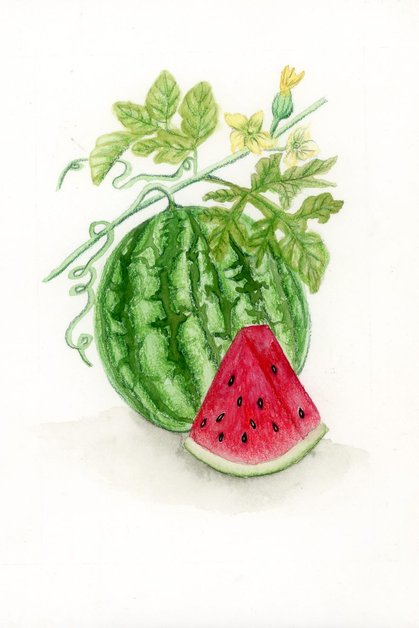 Drawing of a melon for the "Loteria de la Salud" by Cecilia Moo
Drawing of a melon for the "Loteria de la Salud" by Cecilia Moo

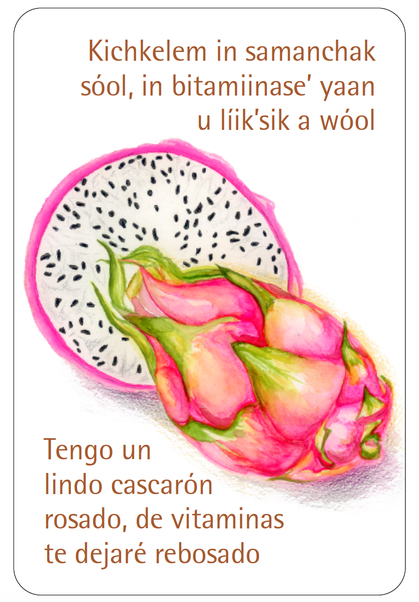 Playing card of the "Lotería de la Salud" with a drawing and a poem in Spanish and Maya
Playing card of the "Lotería de la Salud" with a drawing and a poem in Spanish and Maya
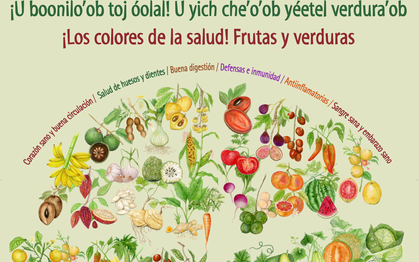

The colors of food not only tell whether a fruit or vegetable is ripe, but they also indicate what kinds of nutrients the food can provide. This is why U Yits Ka'an and Vanessa Gamboa suggested furthering their collaboration and to create posters that divide fruits and vegetables into five main pigment categories, each pigment indicating thereby the corresponding vitamins, minerals, and fibers contained in each. The posters are accompanied by a leaflet with a detailed nutritional chart showing the properties of 50 fruits and vegetables. It complements the Lotería de la Salud/U k'aybuulil toj ólolal with additional information about the unique properties of each local product.

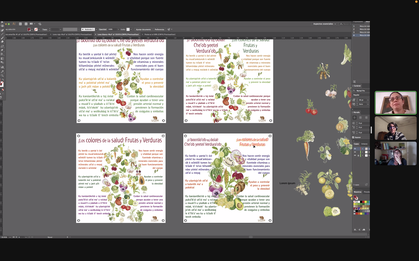 Collective work process in the creation of the "Lotería de la Salud"
Collective work process in the creation of the "Lotería de la Salud"
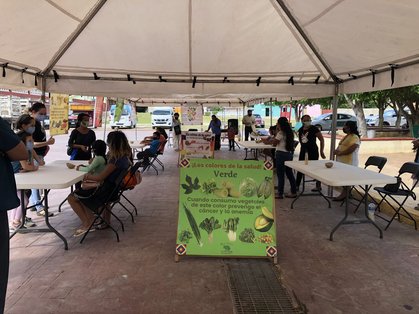 Dissemination of the "Lotería de la Salud" at a local market in Yucatan
Dissemination of the "Lotería de la Salud" at a local market in Yucatan
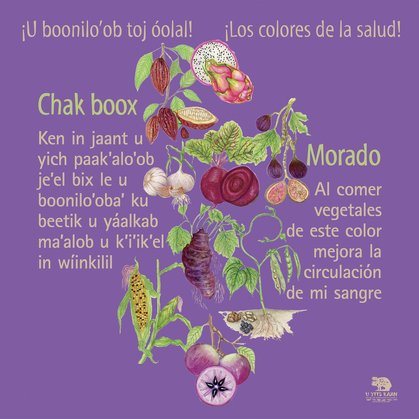 Explanation of the importance of the colors of different fruits for health
Explanation of the importance of the colors of different fruits for health
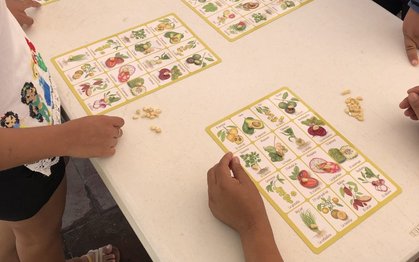

The Lotería de la Salud / U k'aybuulil toj óolal was conceived to be activated and disseminated in Mayan community spaces and organizations and at the tianguis, open-air market, where regional farmers sell and exchange their ecological products, for example, in Telkom, Mayapán, Dzemucut, Kaxaytuk, where the game has already been played by children, grandparents, and adults of all ages in small and big groups. The game was also distributed to more distant communities and organizations that share the Peninsular Mayan language, thanks to the work of Julián Dzul Nah and Abrahan Collí, who delivered and introduced them personally.

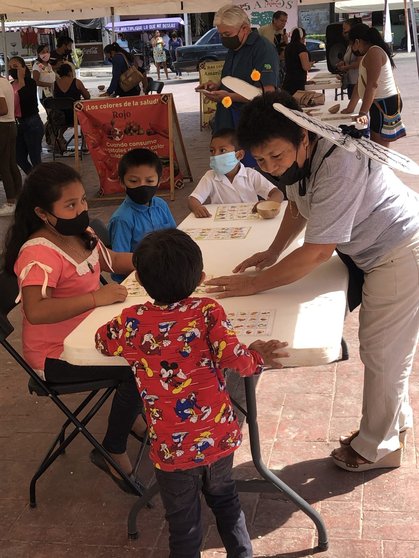 Activation of the "Lotería de la Salud" at a local market in Yucatan
Activation of the "Lotería de la Salud" at a local market in Yucatan
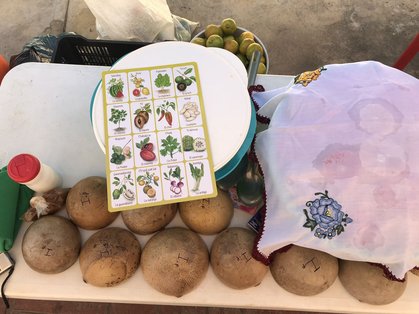 Activation of the "Lotería de la Salud" at a farmers market in Yucatan
Activation of the "Lotería de la Salud" at a farmers market in Yucatan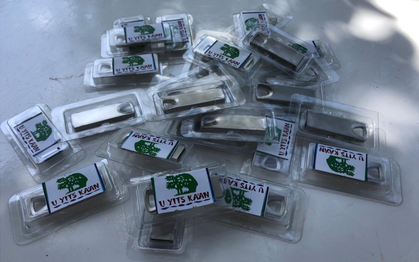

Considering how much Yucatec Maya is a language that lives orally more than in a written form, U Yits Ka'an worked with the community radio "XEPET - La Voz de los Mayas" to produce audio capsules about each fruit and vegetable in Spanish and Peninsular Mayan. These approximately two-minute-long audio pieces are recorded readings of each card. They are designed to have a low data volume, so that they can be easily shared by phone and distributed, whether posted on social media or played via loudspeakers at a tianguis.
Acknowledgements
Mina Bárcenas , Daniela Esther Cano Chan , Marisol Castro , María Elisa Chavarrea Chim , Abrahán Jesus Collí Tun , Julián Dzul Nah , Vanessa Gamboa González , Iván Jiménez Balam , Roseli Jiménez Balam , Radio XEPET - La Voz de los Mayas , Luis Miguel Leon , Cecilia Moo , Pedro Uc BeThis text is based on the accounts of the agroecological school U Yits Ka'an and has been adapted and shortened for its use on this website by Spore Initiative.



